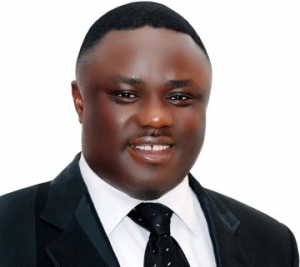Governor Ben Ayade of Cross River State has said that, courtesy of its rich forestry resources, the state provides a key sink for greenhouse gas (GHG) emissions.

Ayade, while addressing governors from Brazil, Indonesia and Peru recently in Barcelona in Spain during the 2015 Annual General Meeting of the Governors’ Climate & Forests Task Force (GCF), also called on the international community to invest in the state’s forest and climate management initiatives. Cross River State is the project site of Nigeria’s maiden UN-REDD+ programme.
The governor, who is perceived to hold an anti-forest management opinion, said at the weeklong forum that held 15-18 June, 2015: “The earth is being suffocated with CO2 poison and Africa continues to serve as the major sink for the CO2 emissions. Cross River State in Africa remains arguably the main carbon blocker/consumer through her forest.
“I therefore seize this opportunity to call on sons and daughters of dear Mother Earth to come and invest heavily in the Cross River State forest and climate management programme. Create green jobs for our youths, protect our watersheds and give our people the chance yet again to live in peace with each other and in harmony with nature. We remain a major solution architect to the world climate crisis equation.”
At the close of the event, Ayade signed the Rio Branco Declaration and the Under 2 MOU, which commit signatories to pledging massive cuts in deforestation.
But, several weeks ago, the governor was accused of not only giving a Chinese firm the rights to exploit the state’s forestry in order to generate income, but also ordering the arrest and detention of officials of the Forestry Commission under controversial circumstances.
Apart from Nigeria, the GCF involves numerous states and provinces from Brazil, Indonesia, Mexico, Peru, Spain and the United States. The 19 tropical members of the GCF account for about a quarter of the world’s remaining tropical forests.
At the 2015 AGM, the GCF welcomed new African members: Bélier, Ivory Coast and Cavally (in addition to its 7th Brazilian member, Rondônia), bringing its membership to 29 states and provinces in eight different countries.
The Government of Norway’s Special Envoy on Climate Change, Hanne Bjurstrøm, announced a substantial contribution to the GCF Fund.
The meeting was attended by 12 GCF Governors and featured new and renewed commitments to the Rio Branco Declaration; mobilisation of additional support for the Under 2 MOU; and many important exchanges with civil society, the private sector, and indigenous peoples organisations.
Jalisco (Mexico) was elected as the incoming chair of the GCF for 2016 and will host the annual meeting in Guadalajara next year.
Amelia Chizwala Peterson, GCF Director, Training & Knowledge Networks, said: “We are making progress on the GCF pan-African Roadmap for Low Carbon Development. With the addition of Bélier and Cavally as GCF members, we have advanced key early action on the GCF pan-African Roadmap for Low Carbon Development launched in Addis Ababa in June 2014.
“Recall that the pan-African Roadmap creates a collaborative network to advance the proliferation of early REDD+ successes among African and other jurisdictional programmes for low emissions development in a manner that is closely attuned to the importance of sustainable livelihoods and communities to REDD+ in the African context.”
